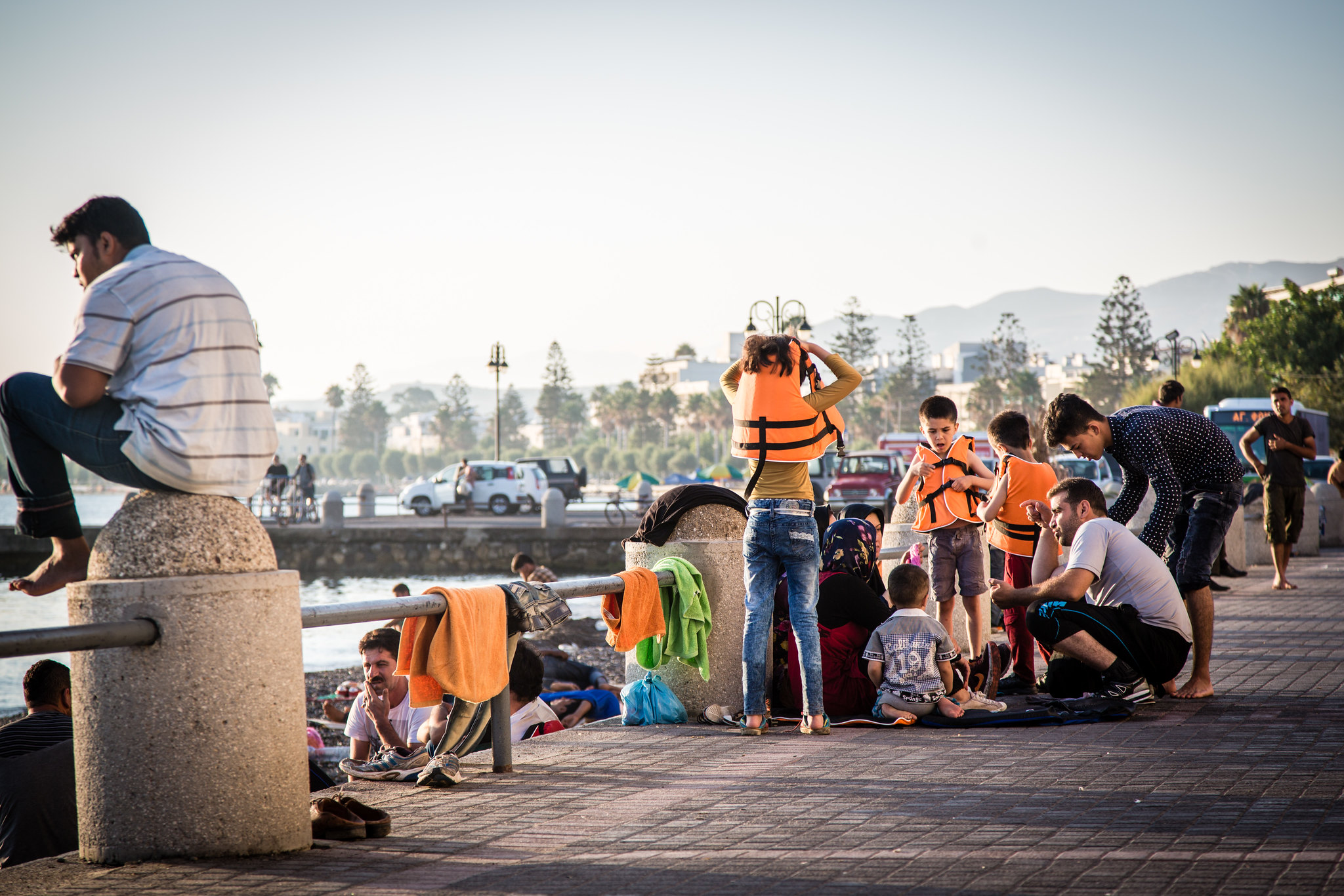Ingeborg Beugel had been living and working in Greece on and off for years when, last month, a stone thrown at her head and a wave of online bullying and threats against her life forced her to return to the Netherlands. The attacks happened after she asked Greek prime minister Kyriakos Mitsotakis why he “keeps lying about pushing back refugees” from Greek to Turkish waters. Her case adds to a growing list of violations against media freedoms in Greece, a worrying sign that all is not well in the European country.
“I hadn’t expected a digital witch hunt”, Beugel told Index on Censorship after she had returned to the Netherlands. Beugel is known in the Netherlands for her many reports from the Greek islands, where refugees are held in camps in dire conditions and where she tracks refugees personally, collecting first-hand evidence of those who are sent back to Turkey. Press conferences with authorities are not her cup of tea, but this time was different, she said:
“This was my chance to let two prime ministers, Mitsotakis of Greece and Rutte from the Netherlands, not get away with denial of push-backs anymore. Until the last minute I wasn’t sure how to phrase my question, but I knew I had to be sharp.”
What she came up with was: “When at last will you stop lying about the push-backs? Please don’t insult either mine or the intelligence of all the journalists in the world. There has been overwhelming evidence and you keep denying and lying. Why are you not honest?”
Mitsotakis reacted furiously, taking it as an insult to both himself and the Greek people. Asked if she had been impolite, Beugel answered: “You know what’s impolite? Pushing refugees back, which is against international law, and lying about it.”
In the evening following the press conference, a rock was thrown at her as she left a grocery shop, grazing her forehead. She ran home and only then discovered the digital witch hunt. [Some of those online were criticising Beugel for helping an asylum seeker, for which she was briefly arrested over the summer. – Editor]
A couple of days later, she was on a plane back to the Netherlands. The Dutch embassy in Athens, the Dutch Foreign Affairs Ministry and the Dutch Journalists Union NVJ strongly advised her to leave because her safety couldn’t be guaranteed anymore.
“’Let it blow over’, they said. So I’m waiting for it to blow over,” Beugel said.
Yannis Kotsifos, director of the Journalists’ Union of Macedonia and Thrace in Greece and chairperson at the European Center for Press and Media Freedom (ECPMF) in Germany, told Index: “Mitsotakis didn’t react in the right way to Beugel’s question and even though I didn’t like her style, I understand why she did it this way. But we need to be careful not to make the debate about press freedom political. Greece’s position on the press freedom list is in decline but it’s not just about this government. The problems are deeper rooted.”
Beugel agreed, and indeed placed the way she phrased her question in a wider context of the Greek media landscape, in which media don’t dedicate a lot of space to the illegal turning away of refugees to Turkey. “Mitsotakis’ denial keeps defining the journalistic narrative and I wanted to break that,” Beugel said. “I knew I would have a big audience at this press conference and that Greek pro-government media couldn’t ignore what I said and what then happened.”
Beugel recalls when she first started as an aspiring journalist in Greece 40 years ago. There was a lot of hope for the future, following the end of the Greek junta, a military dictatorship that lasted from 1967 to 1974.
“But now, the press is mostly in the hands of tycoons who are not in media for the sake of good journalism. Public TV works for the government in power, and has been underfunded,” she said.
Ownership is a problem, but ECPMF’s Kotsifos also highlighted a lack of self-regulation in the press, a lack of finances for independent journalism and for proper working conditions, and a growing distrust in the media because of rising polarisation.
“This leads to hate rhetoric against journalists and sometimes to physical violence,” said Kotsifos.
To break this cycle and encourage a freer press, the Media Freedom Rapid Response, a project that has monitored violations of media freedom across the EU since March 2020, and the ECPMF are conducting a fact finding mission in Greece this month.
The mission was considered necessary because of several worrying “signals”, the worst being earlier this year when crime reporter Giorgos Karaivaz was fatally shot outside his house in Athens. Other incidents include surveillance by the Intelligence Service of Stavros Malichoudis, who reports about migration and refugees.
New legislation is of concern too, most notably the proposed introduction of fines and jail sentences for journalists found guilty of publishing “fake news”, which would, MFRR said,”undermine the freedom of the press and have a chilling effect at a time when independent journalism is already under pressure in Greece”. SLAPP lawsuits, in which journalists are bombarded with legal cases to drain them financially and stifle their work, are also a huge point of concern (as reported here by Index).
Today Beugel is in Amsterdam waiting until the commotion “blows over”. She said: “I want to return as soon as possible. I miss my dogs, who are luckily taken care of by a friend. I miss my friends, my house, my work. This situation is hard, but I know there is not only rejection, but support for my work in Greece as well.”






